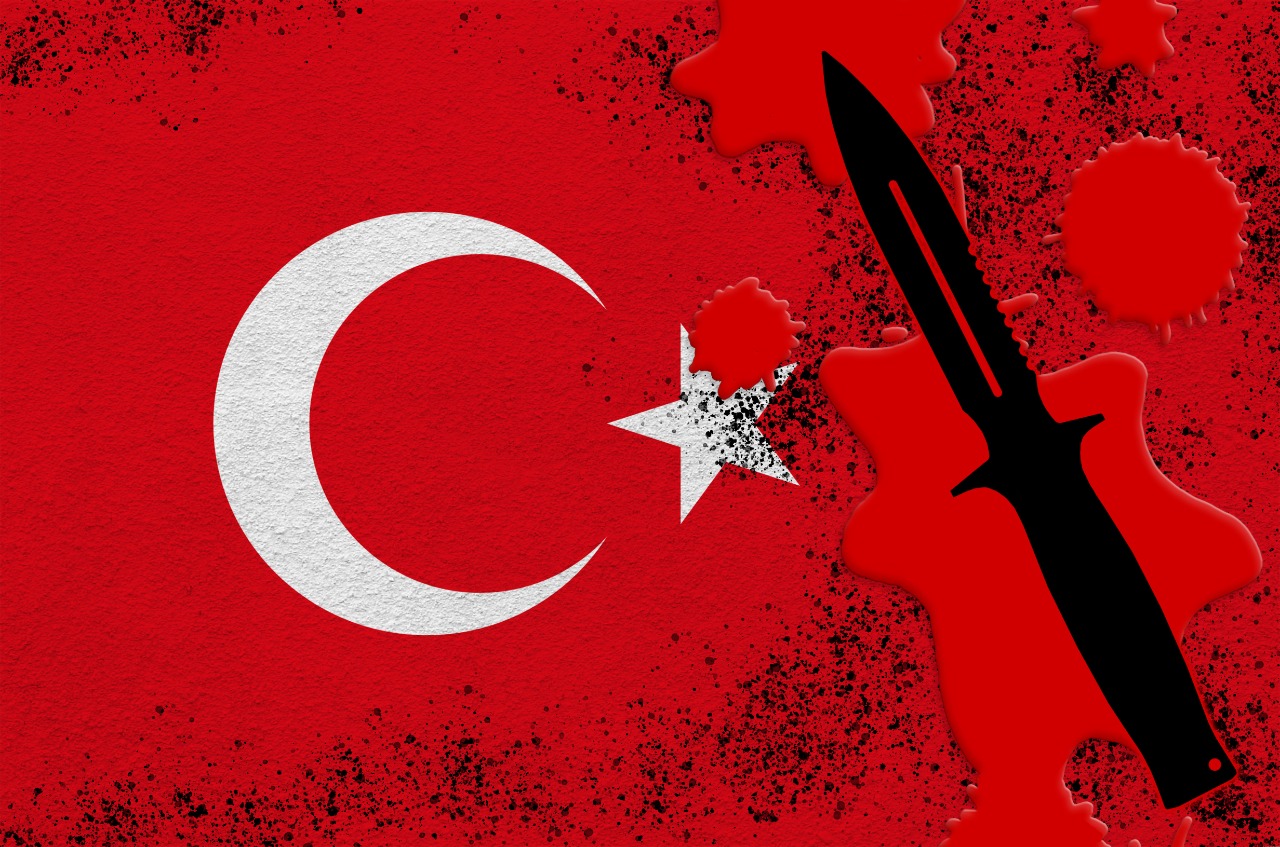Tensions have risen after a hit list surfaced that named several prominent members of the Turkish opposition in Europe, including those living in Germany. Although the investigation has not being concluded, nor the validity of the list ascertained, this has raised questions on whether the Turkish regime could actually carry out such acts, and regarding the future of relations between Turkey and the EU, in particular Turkish-German relations.
Death Threats to the Turkish Opposition
German authorities recently revealed that a hit list comprised of 55 Turkish nationals had come into its possession. These Turkish nationals are spread across the EU and include Journalists and opposition figures living in Germany. The German government issued a statement on the 26th of July, confirming it had the list and was investigating its authenticity. The German foreign ministry on the same day issued a statement stressing Germany’s support of liberties and freedom of expression all over the world and condemning all forms of violence against journalists. The statement called on all individuals residing in Germany to avoid becoming involved in any form of violence. The foreign ministry also noted that Germany has watched with concern the continued degradation of freedom of expression in Turkey, especially with regards to journalists, and that this was a subject of discussion in all meetings with Turkey.
The German journalists’ association has called on the German government to take actions regarding threats and assaults against Turkish journalists living in Germany. The head of the syndicate Frank Überall, called on the German foreign minister to follow up on the issue of the hit list, and to send a clear message to Turkey that these crimes will not be tolerated in Germany. He argued that these figures were not receiving adequate protection, in view of the attack suffered by Erk Acarer, a member of the Turkish opposition, in Berlin on July the 8th, which was followed by a threat received on the 20th of the same month. There have been reports that the German police have had to warn several individuals on these hit lists, including prominent Turkish Journalist Galal Bashlangitch, deputy leader of the people’s democratic party Haseeb Kapalan, as well as the Turkish journalist of Armenian descent Haiko Baghdat.
The political context
These alleged threats to opposition figures in Europe appear to be linked to an environment characterized by escalating tensions on a number of fronts, including:
1- On the Turkish domestic scene, some have interpreted these alleged threats against opposition figures abroad as an extension to the current regime’s policies towards the opposition. Another interpretation points to the Turkish right-wing party, the Nationalist Movement Party, putting out this list as a tactic to undermine the improvement of relations recently between Turkey on the one hand and NATO and the EU on the other. If these allegations were to prove true, this would cause a major schism in the ruling alliance in Turkey, between the Nationalist Movement Party, and the AKP. This would have implications regarding the stance of right-wing groups operating in Europe, such as the Grey Wolves and the Ottoman Germanians.
2- Turkish -European relations have also been tense in recent months. It is noteworthy that the EU parliament last May voted overwhelmingly to suspend negotiations with Turkey over joining the EU, citing continued abuse of human rights in Turkey, as well as Turkey’s ongoing military activities in neighboring countries. The European Parliament expressed great concern as to the activities of the right-wing extremists, the Grey Wolves. This organization is associated with the right-wing movement in Turkey and has close ties to the Nationalist Movement Party. The latter is headed by Devlet Bahçeli, who is a member of the ruling coalition in Turkey. The EU Parliament moreover called for placing the Grey Wolves and its affiliates on the terrorist watch list in the EU.
The EU parliament also discussed the situation of the Turkish opposition on the 6th of July and called on Turkish authorities to end the violence against the Turkish opposition parties, including the campaign against Kurdish opposition parties, and to allow them their freedoms. The EU Parliament pledged to continue to monitor the situation closely, stressing the need to improve the democratic situation in Turkey prerequisite to making progress in EU – Turkish relations as a whole.
3- With a looming ban on the Grey Wolves, to be discussed by Germany’s parliament in November, Turkish – German relations are most likely heading for a rough, turbulent period. This prediction is backed up by the stance expressed by Angela Merkel in a press conference on the 22nd of July , in which she discussed the renewal of tariffs agreement and the 2016 refugee agreement with Turkey, and in which she expressed the view that Turkey is unlikely to become a member of the EU. Her statements did not imply any threat of escalation with Turkey.
This stance has caused Turkish opposition figures to express concern, that Germany will not take a strong stand regarding the presumed threats against them. They argue that Germany’s foreign policy priorities align with that of Turkey, especially with regards to its upcoming role in Afghanistan, and the refugee agreement with the EU. They feel that therefore issues of democracy and human rights will not figure strongly in any upcoming negotiations with the Turkish regime.
Impact on Turkey’s image
The alleged hit list is likely to have a negative impact on Turkey’s image, as it fits in with reports of escalating aggression by the Turkish regime against journalists and opposition figures, especially since the failed coup in 2016. Since then, Turkey has closed over 204 journalistic institutions and, according to the organization Reporters without Borders, has arrested over 200 journalists and media personalities in Turkey. This has increased the number of opposition figures living abroad to escape this crackdown, many of whom now live in Germany.
Over the last year, Freedom House classified Turkey as “Not Free”, and its recent reports claim that the Turkish regime has led a crackdown beyond its borders, in over 31 countries across the globe, against opposition figures it accuses of being involved in the failed 2016 coup. Initially, the government had targeted those involved with Fethullah Gulen, whom it accuses of being behind the failed coup in 2016, but it has widened its scope to target Kurds and leftist politicians as well.
In sum, this alleged hit list is likely to exacerbate tensions on the domestic Turkish scene, between the members of the ruling alliance the AKP and the Nationalist Movement Party as well as on the international scene, lessening Turkey’s chances of joining the EU. In a context of breached human rights and ongoing military interventions in neighboring countries, accusations of alleged plots against opposition figures and journalists are likely to expos Turkey to increased pressure from the international community.


